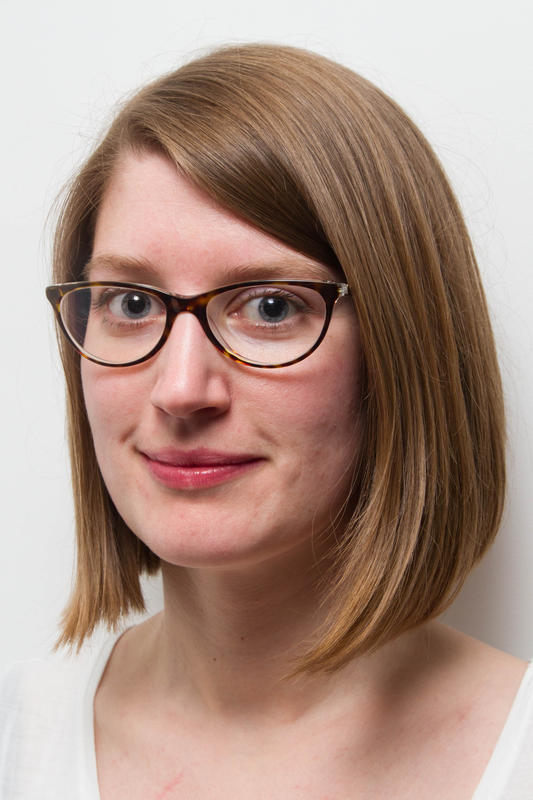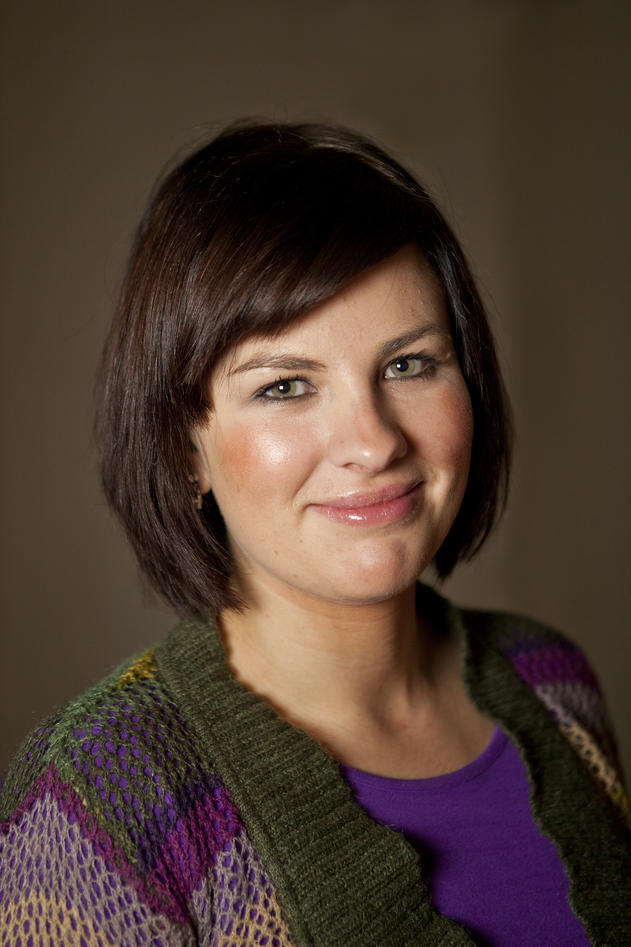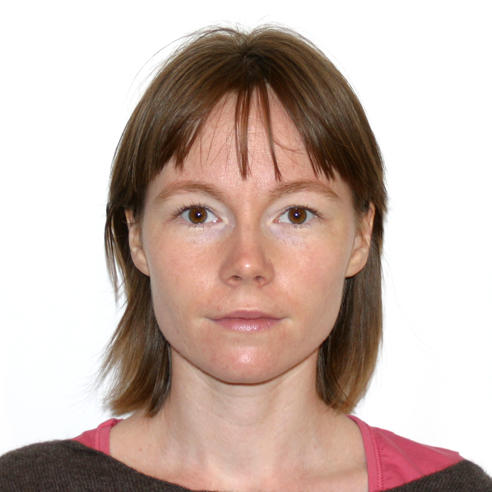Ongoing PhD projects
The following PhD projects are connected to the profilearea
Hovedinnhold
Rebecca Dyer Ånensen
Transition to adulthood: Transmission of values between three generations in the majority and minority population in Norway
My PhD-project is part of a larger study about the transition to adulthood. The study looks at family cases consisting of three generations and investigates how the transmission of material and non-material values within families is connected to social inequality across national contexts and historical periods. Using cross-national life course design it takes a closer look at the ethnic majority in Norway and the UK. My project will add an immigrant perspective to this study by investigating the meaning of intergenerational value transmission within three generation families with immigrant backgrounds (from Pakistan and Vietnam), and compare these with families from the majority population.
SynnøveFluge:
User participation: from policy to practice
In my PhD-project I will look at how different discourses about user participation is manifested in Norwegian policy documents about welfare care services, and how these are related to broader historical and institutional changes. I also want to examine, by using qualitative methods as ethnographic field work, interviews and focus group interviews, the daily practice and lived experiences of the users of welfare care services in two different Norwegian municipalities. The user-groups in focus are elderly persons, persons with mental sufferings and disabled persons. I want to examine how the users experience their opportunities of– and possibilities for –`real` user participation. I will also look at whether they interpret the concept differently dependent on which user group they belong to. How employees define, interpret and facilitate user participation through their roles as street level bureaucrats in every day practice, is also of importance. Another research question is if and how gender affect the way the care work is performed. Does a gendered pattern shape the relations between users and employees – also taking into consideration the gender of the user- in the three different cases? Through the research process we will engage experienced users of the selected welfare services by involving them in certain parts of the research and evaluation of the project. This research-method will be thoroughly explained and discussed in the PhD-project, as it raises some epistemological and methodological questions to be examinedcritically.
Bo Vignes:
Early Retirement among Elderly Immigrants and Native Norwegians in Norway
In my PhD-project I am studying early retirement among elderly immigrants and native Norwegians, focusing on transitions out of the labour market and economic inequality after transition to retirement. Special focus is directed towards the use of and entitlement to alternative pension schemes and to what degree tenure, education and different family situations among immigrants and native Norwegians can explain the different use of retirement schemes and economic situation after retirement.
I am also involved in a project studying the short and long term effects of divorce on sickness absence in Norway.
Katrine Bjerke:
Transnational aging in Norway
This PHD project explores, from a bottom-up perspective, how elderly immigrants perceive aging in Norway and how they experience and relate to the public welfare and care regime in Norway. It will explore elderly immigrants expectations when it comes to old age in Norway, their practices when aging occurs and how they go about covering their assistance needs both formally (within the public welfare system) and informally (within the family and/or the community which they are part of). The project has two main interrelated foci which are expectations, perceptions and attitudes towards aging in Norway and the Norwegian care regime on the one hand, and everyday practices in old age on the other hand.
Among migrants facing old age in Norway today I have chosen two groups, namely immigrants with a Pakistani and immigrants with a Polish background. The project aims at a comparison between immigrants from within Europe and from outside of Europe.
Anja M.S. Ariansen:
Gender, parenthood, pregnancy, and sickness absence
Anja M.S. Ariansen’s doctoral thesis is about gender, parenthood, pregnancy, and sickness absence. The articles are based on quantitative analyses of the Norwegian Level of Living Survey and Norwegian registry data (Fd-Trygd). During her research project, she has had a research stay at the University of North Carolina at Chapel Hill, where she visited Professor Arne Kalleberg and attended his classes on «Work and occupations».
Ingrid Voll:
Participants and employees experiences with the new Qualification Program in The Norwegian Labour and Welfare Service (Nav)
The main purpose of my PhD-project is to gain new knowledge about the experiences of employees and participants when a new, full time qualification program (QP) is implemented in the Nav-offices in Norway. Particular attention will be directed towards their experiences with the new methodology for assessment of workability (arbeidsevnevurdering) in Nav, and to their experiences related to the designing and implementing of the content of the program.
The concept work ability is of central importance in Nav. This is in line with a Western welfare policy that focuses strongly on the individual’s responsibility for labor market participation, which also includes increased use of various standardized tools in the implementation of the workline. This is some of the background for my research question in this project: What are the participants ' and employees' experiences with the Qualification Program in Nav and the new dialogue based welfare technologies used in this program? How can power, identity and risk be reflected in the relationship between the participants and the staff of the qualification program?
The Qualification Program is rather new, and the research has an exploratory design, using different qualitative methodological approaches, as in-depth interviews with both participants (clients) and employees in the QP.
Kristian Mjåland
PhD-student, Uni Research Rokkansenteret / University of Bergen (sociology)Drug rehabilitation in prison
My ethnographic PhD-project is about drug rehabilitation in prison. Through participant observation and qualitative interviews with both inmates and staff at two different drug rehabilitation programs in a closed Norwegian prison, I explore how the prison relates to inmates with drug problems, and how inmates with drug problems experience and relate to the prison. The prisons responsibility for and role in drug rehabilitation has been considerably strengthened the last decade. Convicted individuals with drug problems are the target group for many of the rehabilitating measures and programs, due to the close relationship between substance abuse and crime. The aim behind this development is that inmates with drug problems shall be reintegrated in the community with improved possibilities to live a law-abiding life. Rehabilitation is nonetheless subordinated the prisons’ primary aims and tasks, namely control and security. Inmates with drug problems have an equal need for and right to health-, treatment-, and rehabilitation services as other Norwegian citizens, due to the ‘principle of normalization’. Yet, in the daily life in Norwegian prisons, we know that both rights and services are challenged by security and control considerations. Thus, rehabilitation and treatment are becoming more and more important in an institutional setting where security and control prevails as the dominant task and purpose.
The phd-project explores the conditions for rehabilitation of drug users in the highly controlled context of the prison. The following research questions are raised in the project: How does imprisonment affect inmates with drug problems, and how do they experience the rehabilitation efforts? How do inmates cope with their drug problems in prison, and what measures, services, professionals, rights and relations are of greater or lesser importance for them? How is rehabilitation of inmates with drug problems affected by the prisons primary aim of taking care of control and security, and how does it affect the relations between inmates and staff? What characterizes use and exchange of drugs in prison, and how does it affect social relations, power relations and rehabilitation programs in prison? Theoretically the project builds on a variety of perspectives, most notably issues of power, control, and resistance in welfare institutions (e.g. Cohen, 1985; Mik-Meyer and Villadsen, 2007). Furthermore, the project aims at integrating a research tradition into drug use, drug exchange and drug cultures with the prison ethnographic approach into the issues of social relations, power relations and resistance in everyday prison life (see also Crewe, 2005, 2006, 2009).




